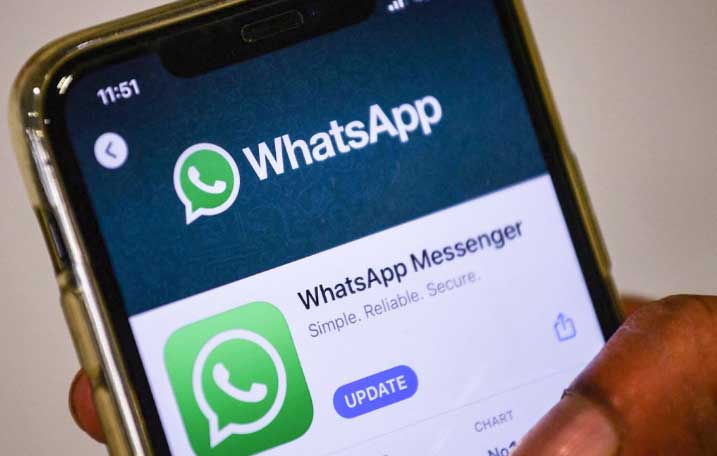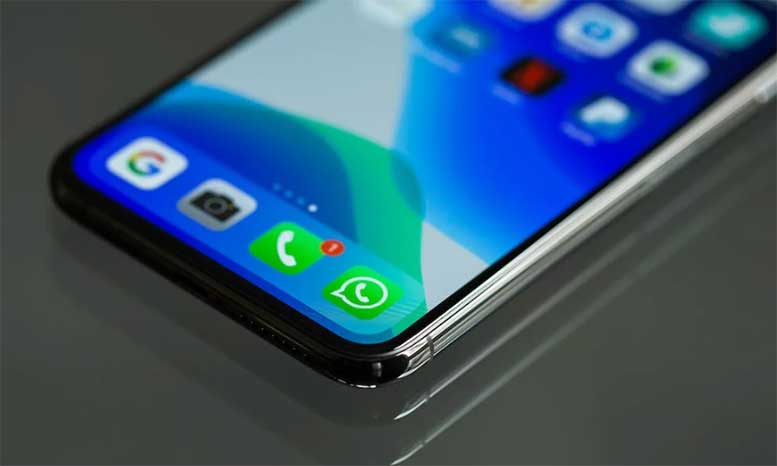WhatsApp has become a popular communication tool, connecting millions of people worldwide. However, with the rise in cybercrime and data breaches, many are questioning just how secure their conversations on the platform are. We put WhatsApp under a microscope to see where its strengths lie, as well as any weaknesses it might have.
End-to-End Encryption: The Heart of Security
End-to-end encryption is the backbone of WhatsApp’s security protocol. This cryptographic technique is supposed to ensure that only the sender and receiver can access the messages, photos, videos, voice messages, documents, and status updates they exchange.
In simpler terms, imagine your message as a physical mail package. End-to-end encryption secures this package with a unique lock, and only the recipient has the key to open it. The best part is, this process occurs automatically, negating the need to adjust any special settings on your end.

Personal and Business Messaging: Secure, Yet Different
Whether you’re chatting with a friend or communicating with a business, WhatsApp applies end-to-end encryption to all messages using the Signal encryption protocol (more on this in a moment). However, there are nuanced differences in the handling of personal and business messages.
For personal messages, the end-to-end encryption is supposed to guarantee that no outside party can listen in on or read your conversations – and that includes WhatsApp. This is allegedly due to the aforementioned unique lock-key mechanism, where only you and the recipient have the necessary keys. But is it possible that someone on WhatsApp’s end could read your messages if they chose to? Stick around to find out.
As for business messages, they too are encrypted. But they follow a slightly different journey. Once a message reaches a business account, its handling is subject to that business’s own privacy practices. The business could designate employees or even other vendors to process and respond to the message. As such, it’s good practice to only send messages that you’d have no issue with others seeing.
Encryption and Payments
When it comes to payments via WhatsApp, available in select countries, a slightly different security protocol is followed. Card and bank numbers are encrypted and stored in a secure network. However, because financial institutions need certain information to process transactions, these payments aren’t end-to-end encrypted.
The Verify Security Code Feature
WhatsApp provides an additional security feature for end-to-end encrypted chats: the Verify Security Code. This code, which can be accessed via the contact info screen, is a unique security code that helps confirm that your messages and calls are end-to-end encrypted.
You can verify this code in two ways. If you happen to be right next to the person you’re messaging, you can scan their QR code or examine the 60-digit code number. If they aren’t nearby, you can always text them the 60-digit code number for comparison using a different messaging platform. A matching code ensures that no one is intercepting your messages or calls.

Understanding Signal Protocol: The Gold Standard in Encryption
When it comes to digital communication security, the Signal Protocol stands as a shining beacon. Used not just by renowned apps like WhatsApp but also Facebook Messenger and Google’s Allo for their incognito mode, the Signal Protocol forms the backbone of some of the most secure messaging systems worldwide.
How Does Signal Protocol Work?
The Signal Protocol is an end-to-end encrypted communication protocol. It has been developed by Open Whisper Systems, the team behind Signal Private Messenger, an app known for prioritizing privacy and security above all else.
The Signal Protocol employs strong encryption algorithms. Let’s take a moment to examine each of these to gain a better understanding of Signal and the measures it takes to secure your messages.
The Extended Triple Diffie-Hellman (X3DH) Key Agreement Protocol: This protocol allows two parties, who may not be online at the same time, to establish a shared secret key for secure communication.
Double Ratchet Algorithm: It provides a method for secure messaging with future secrecy property, meaning that even if encryption keys from a user’s device are stolen, the attacker cannot decrypt past messages. The keys are updated (or “ratcheted”) with every message sent, hence the term “double ratchet.”
Prekeys: These are the last piece of the puzzle. They’re designed to make the protocol work even when one party is offline. A stash of these prekeys is stored on the server and fetched by the recipient to start a conversation with the sender even if they’re offline.
Cryptographic Primitives: Curve25519, AES-256, and HMAC-SHA256 are cryptographic standards that provide the necessary mathematical operations to secure your messages.
Moreover, the strength of the Signal Protocol lies in its ability to provide “forward secrecy” and “future secrecy.” The forward secrecy ensures that if a private key is compromised, previous session keys will not be compromised. Future secrecy, on the other hand, ensures that if a current session key is compromised, it will not affect any future session keys.
What’s more, the Signal Protocol is open-source, meaning it’s accessible to the public for scrutiny, bug identification, and improvements. This transparency gives users the confidence that there are no backdoors or secret ways to bypass the encryption – all evidence of why WhatsApp chose this protocol.

WhatsApp’s Commitment to User Safety
WhatsApp’s implementation of end-to-end encryption in 2016 was a step toward stronger user data protection. WhatsApp says it cannot access the content of end-to-end encrypted messages or calls because the encryption and decryption process happens solely on your device.
Despite some concerns regarding law enforcement’s ability to monitor potential criminal activity through encrypted conversations, WhatsApp maintains its commitment to user safety and privacy. The company acknowledges the importance of law enforcement agencies and ensures they respond to their requests based on applicable laws and policies.
Questioning WhatsApp’s Security: A Deep Dive into the Fine Print
While everything we’ve heard up to this point sounds great, it’s important to take a subjective approach any time personal data is the topic of discussion. So with that in mind, let’s now turn our attention to some fairly recent research that has called WhatsApp’s security into question.
More specifically, WhatsApp’s security claim of offering complete privacy via end-to-end encryption might have a few caveats. To understand this, we need to take a closer look at WhatsApp’s end-to-end encryption.
Flagging Messages: The Loophole in Encryption
While WhatsApp does employ end-to-end encryption, a loophole exists. If a recipient flags a message as improper, it gets copied and sent as a separate message to Facebook for review. While this is understandable, it’s what’s included that causes concern – the flagged message includes the four most recent previous messages in that thread.
Therefore, though Facebook may not access messages without a user’s intervention, there is a theoretical possibility for automatic flagging and forwarding of messages, undermining the end-to-end encryption to some extent.
Content Moderation vs. Reviewing
Interestingly, Facebook employs around 1,000 contract workers whose job is to review flagged WhatsApp messages for inappropriate content. This process contradicts the assumption that WhatsApp messages are entirely private and inaccessible to third parties, including Facebook.
However, these reviewers can’t directly moderate content. They only have three options – ignore, watch, or ban the user account. The language barrier and cultural context make their job even more challenging, as they often rely on Facebook’s imperfect automatic translation tools.

Unencrypted Metadata: A Hidden Treasure
The issue of unencrypted metadata further muddies the waters. While the contents of WhatsApp messages are encrypted end-to-end, associated metadata – like user account details, device fingerprints, associated Facebook and Instagram accounts, and more – is visible to Facebook.
As we touched on previously, law enforcement can legally request this metadata, and Facebook is obliged to comply under certain circumstances. Pen register orders – requests for connection metadata – are not uncommon and can provide valuable insights to investigators, even without breaking the end-to-end encryption of the message contents.
User Misuse: A Pandora’s Box
The security feature allowing users to flag inappropriate messages has also been misused. Some users have been known to manipulate the system by changing the names of their group chats to something that violates WhatsApp’s policies and then reporting it. This activity can trigger AI systems to incorrectly ban groups.
WhatsApp’s end-to-end encryption, while serving as a robust security measure, is not infallible. The potential for flagged messages to be reviewed by a third party, the vulnerability of unencrypted metadata, and the possibility of system misuse are all areas of concern.
As such, it’s crucial for users to understand the fine print of WhatsApp’s privacy and security policies and rely on a combination of technology, policies, and trust when using the platform.
Final Thoughts
The encryption and privacy offered by WhatsApp are robust enough for the majority of users, but they’re not absolute. For those who seek the utmost privacy and security, understanding the nuances of these issues is critical. To remain safe, always exercise caution about the information you share online, not only on WhatsApp but across all digital platforms.
At the end of the day, using WhatsApp or any other messaging platform is about balancing convenience with security. It’s essential to stay informed about potential privacy concerns and navigate your digital life armed with that knowledge.
Meet Ry, “TechGuru,” a 36-year-old technology enthusiast with a deep passion for tech innovations. With extensive experience, he specializes in gaming hardware and software, and has expertise in gadgets, custom PCs, and audio.
Besides writing about tech and reviewing new products, he enjoys traveling, hiking, and photography. Committed to keeping up with the latest industry trends, he aims to guide readers in making informed tech decisions.

